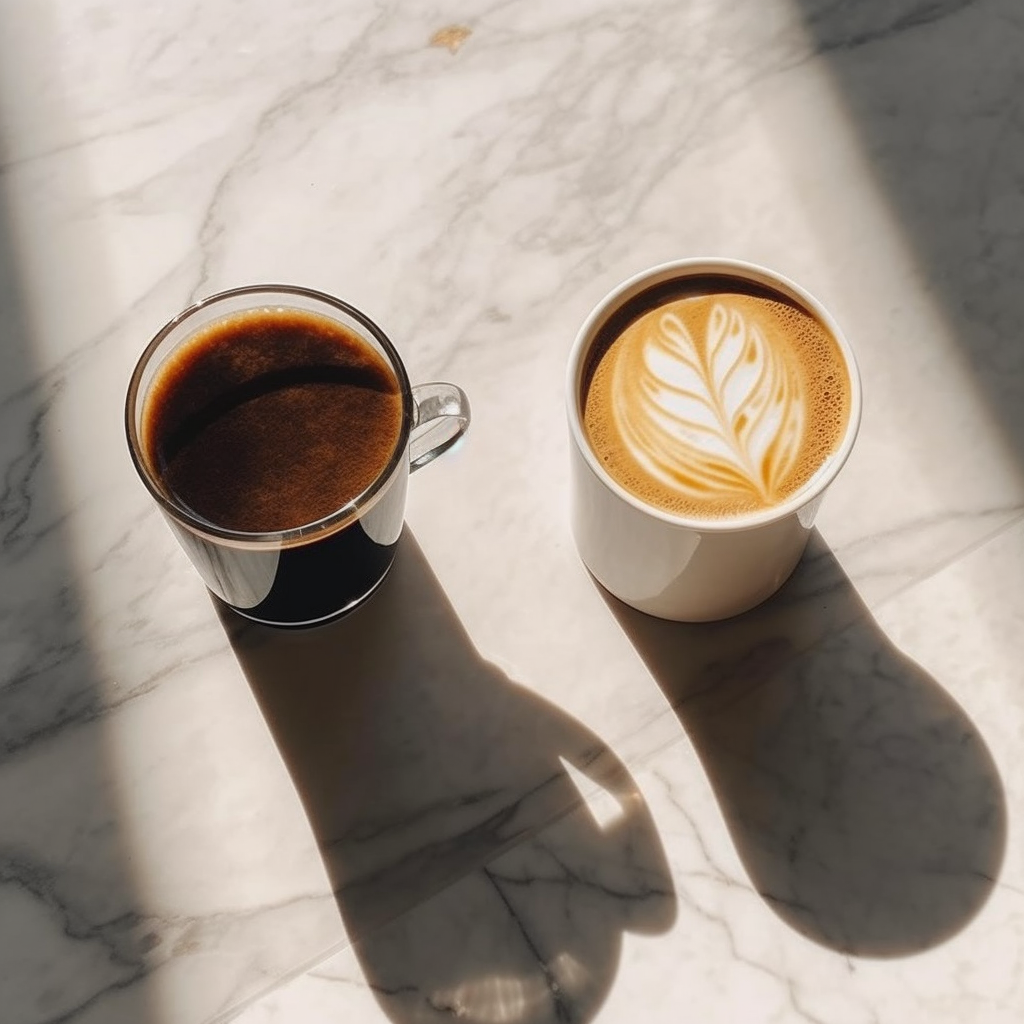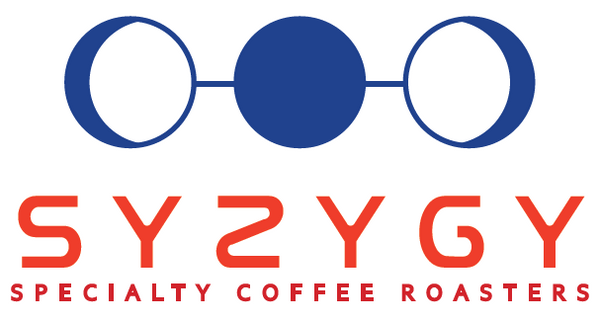
Is Specialty Coffee Expensive, or is Commercial Coffee Too Cheap? | Syzygy Coffee
Share
The Hidden Costs of Cheap Coffee: Why Specialty Coffee Is Better for You and the Planet
If you are a coffee lover, you probably have a daily routine of enjoying your favorite brew. But have you ever wondered how much you spend on coffee every year? And how does that compare to other products that you buy, such as wine, beer, chocolate, cheese, or clothes?
According to a survey by Zagat, the average American spends about $1,100 on coffee per year, or about $3 per day. However, the same survey found that the average American spends only $10 on a bottle of wine, or about $0.83 per glass. This means that people are willing to pay more for a daily cup of coffee than for a glass of wine, even though wine is usually considered a more expensive and refined drink.
But what if we told you that the coffee you are drinking is not worth the price you are paying? What if we told you that there are hidden costs of cheap coffee that you are not aware of? And what if we told you that there is a better alternative that is better for you and the planet?
In this blog post, we will expose the hidden costs of cheap coffee, such as the environmental, social, economic, and health impacts. We will also show you how specialty coffee is a solution to these issues, as it supports organic farming, fair trade, direct trade, and social responsibility. And we will also tell you how specialty coffee can improve your health, happiness, and taste buds.
What is cheap coffee and why is it bad?
Cheap coffee, also known as commodity coffee, is the type of coffee that is traded on international stock exchanges and supplied in bulk by national brands. It is usually grown in large monoculture plantations that use pesticides, fertilizers, and irrigation. It is also harvested by machines that do not distinguish between ripe and unripe cherries, resulting in a mix of good and bad beans. It is then processed in factories that do not remove defects and debris, such as stones, twigs, and insects. And it is finally roasted in large batches that burn the beans and mask their natural flavors.
Cheap coffee has a negative impact on the environment, as it causes deforestation, soil erosion, water pollution, and biodiversity loss. According to a study by the World Wildlife Fund, coffee production is responsible for 6.9% of global deforestation, or 2.5 million hectares of forest loss per year. Coffee plantations also degrade the soil quality, reduce the water availability, and threaten the habitats of many endangered species, such as birds, monkeys, and frogs.
Cheap coffee also has a negative impact on the social and economic conditions of the coffee farmers and workers. According to a report by the Fairtrade Foundation, coffee farmers receive only 10% of the final retail price of coffee, or about $0.03 per cup. This is not enough to cover their production costs, let alone their living expenses. Coffee workers are also exposed to hazardous chemicals, low wages, long hours, and poor working conditions. Many of them suffer from health problems, such as respiratory diseases, skin infections, and cancer. And many of them resort to child labor, forced labor, and human trafficking to survive.
Cheap coffee also has a negative impact on your health, as it contains pesticide residues, mold, mycotoxins, and acrylamide. Pesticides are chemicals that are used to kill pests and weeds, but they can also harm humans and animals. According to the Environmental Protection Agency, pesticides can cause acute and chronic effects, such as headaches, nausea, vomiting, diarrhea, skin rashes, nerve damage, and cancer. Mold is a fungus that grows on damp and decaying organic matter, such as coffee beans. Mold can produce mycotoxins, which are toxic substances that can cause allergic reactions, immune system disorders, liver damage, and cancer. Acrylamide is a chemical that is formed when coffee beans are roasted at high temperatures. Acrylamide can cause nerve damage, infertility, and cancer.
What is specialty coffee and why is it good?
Specialty coffee, also known as craft coffee, is the type of coffee that is graded on a cupping scale of 80 to 100 points, based on its quality, taste, and aroma. It is usually grown in unique microclimates that enhance the flavor and complexity of the beans. It is also hand-picked by skilled workers who select only the ripe and perfect cherries. It is then carefully processed by various methods, such as washed, natural, or honey, that preserve the freshness and sweetness of the beans. And it is finally roasted by experts who highlight the distinct flavor profiles and nuances of the beans.
Specialty coffee has a positive impact on the environment, as it supports organic farming, shade-grown coffee, and bird-friendly coffee. Organic farming is a method of agriculture that does not use synthetic pesticides, fertilizers, or genetically modified organisms. It relies on natural inputs, such as compost, manure, and mulch, to enrich the soil, conserve the water, and prevent erosion. Shade-grown coffee is a method of cultivation that grows coffee under the canopy of native trees, rather than in full sun. It protects the forest, provides habitat for wildlife, and improves the quality and quantity of the coffee. Bird-friendly coffee is a certification that ensures that coffee farms meet the standards of organic farming and shade-grown coffee, as well as provide food and shelter for migratory and resident birds.
Specialty coffee also has a positive impact on the social and economic well-being of the coffee farmers and roasters. Specialty coffee supports fair trade, direct trade, and social responsibility. Fair trade is a certification that guarantees that coffee farmers receive a minimum price for their coffee, as well as a premium for social and environmental projects. Direct trade is a relationship between coffee roasters and coffee farmers, that eliminates the middlemen and pays the farmers higher prices for their coffee, based on quality and transparency. Social responsibility is a commitment to improve the lives of the coffee communities, by supporting education, health, and empowerment.
Specialty coffee also has a positive impact on your health, as it contains antioxidants, vitamins, minerals, and lower risk of diseases. Antioxidants are substances that protect the cells from free radicals, which are molecules that can cause oxidative stress, inflammation, and aging. Coffee is one of the richest sources of antioxidants in the human diet, and it can help prevent or reduce the damage caused by free radicals. Vitamins and minerals are essential nutrients that the body needs to function properly. Coffee contains several vitamins and minerals, such as riboflavin, niacin, pantothenic acid, potassium, magnesium, and manganese, that can support the metabolism, the nervous system, and the immune system. Lower risk of diseases is a benefit that coffee can provide, by reducing the chances of developing certain conditions, such as type 2 diabetes, Alzheimer’s, Parkinson’s, and some types of cancer.
How to enjoy specialty coffee and make a difference?
If you are interested in trying specialty coffee and tasting the difference for yourself, here are some tips on how to find, buy, and brew specialty coffee, and how to join the specialty coffee community.
- Find specialty coffee by looking for the Specialty Coffee Association (SCA) logo, or the Cup of Excellence (COE) award, when buying coffee. While these aren't generally found in the coffee bag itself, you can generally find it on the roaster's website or social media profiles. These are indicators of quality and excellence, that certify that the coffee meets the highest standards of specialty coffee. You can also visit a local specialty coffee shop or roaster, and ask for their recommendations. They will be happy to share their knowledge and passion with you, and help you discover new and exciting coffees.
- Buy specialty coffee by choosing whole beans, rather than ground coffee, and checking the roast date, rather than the expiration date, on the package. Whole beans will preserve the freshness and flavor of the coffee longer, and allow you to grind them according to your preferred brew method. The roast date will tell you how recently the coffee was roasted, and how fresh it is. Ideally, you want to buy coffee that was roasted within the last two weeks, and consume it within the next two weeks.
- Brew specialty coffee by using filtered water, a scale, a grinder, and a brewer of your choice. Filtered water will ensure that the water is clean and free of impurities, that can affect the taste and extraction of the coffee. A scale will help you measure the exact amount of coffee and water, and achieve the optimal coffee-to-water ratio, which is usually between 1:15 and 1:18. A grinder will allow you to grind the coffee beans right before brewing, and adjust the grind size according to your brew method. A finer grind will result in a stronger and faster extraction, while a coarser grind will result in a weaker and slower extraction. A brewer of your choice will let you enjoy the coffee in different ways, such as drip, pour-over, French press, AeroPress, or espresso. You can experiment with different brewers and find the one that suits your taste and style.
- Join the specialty coffee community by learning more about the culture and history of coffee, and sharing your experiences and opinions with other coffee lovers. You can read books, magazines, blogs, and podcasts, that will enrich your knowledge and appreciation of coffee. You can also join online forums, social media groups, and events, that will connect you with other coffee enthusiasts and professionals. You can also support the specialty coffee industry, by buying from ethical and sustainable sources, and by spreading the word and educating others about the benefits of specialty coffee.
At Syzygy Specialty Coffee Roasters, we are passionate about specialty coffee and we only roast specialty grade coffee. We source our coffee from the best farms and regions in the world, and we roast them with care and precision, to bring out their unique flavors and aromas.
We invite you to visit our website and shop, and try our specialty coffee for yourself. You will be amazed by the difference, and you will never go back to cheap coffee again. Thank you for reading, and we hope to see you soon. ☕
